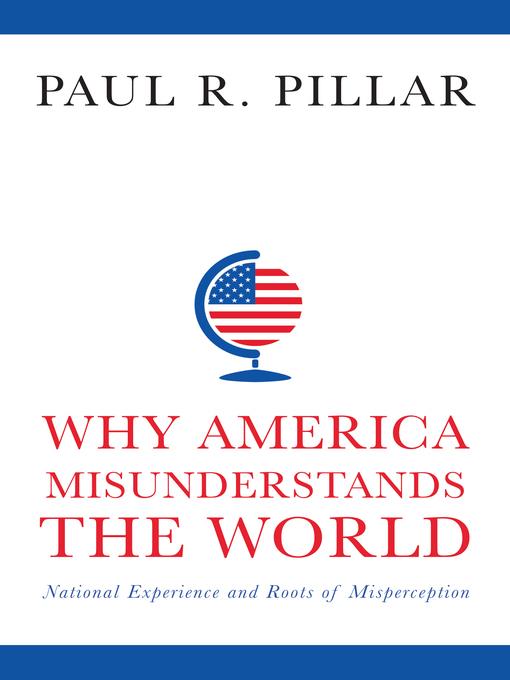
Why America Misunderstands the World
National Experience and Roots of Misperception
کتاب های مرتبط
- اطلاعات
- نقد و بررسی
- دیدگاه کاربران
نقد و بررسی

January 1, 2016
Understanding the naive, distorted prism through which the United States views the rest of the world. In this scholarly book, Pillar (Center for Security Studies, Georgetown Univ.; Intelligence and U.S. Foreign Policy: Iraq, 9/11, and Misguided Reform, 2011, etc.) examines some of the national characteristics and proclivities that encourage Americans to see the world in overly optimistic, Manichaean terms and the dangerous impact thereof on foreign policy. With the "moat" of two vast oceans separating the American continent from the troubled, crowded European theater--and while enjoying the bounty of massive natural resources without enemies in proximity--Americans tend to project a benevolent view of the world and expect the rest of the world to comply. America's "exceptionalism"--an ingrained sense that the nation is unlike any other, founded on enlightened principles, free of nasty imperial history, and therefore superior--sets it on a collision course with the rest of the world, which does not share its sense of entitlement. Part of what Pillar sees as America's "uncorrected ignorance" was generated early on, before America became a global power, without the "close and continuous interaction or competition with other countries that would have challenged American ideology and American conventional wisdom." The country's long period of invulnerability from foreign threats impedes it from sharing in other countries' real security fears, engendering insensitivity and bewilderment, while the sharp distinctions between good and bad--e.g., presidents calling the enemy the "evil empire" and "axis of evil"--harken back to a period of heightened religiosity. Pillar argues that this profound lack of self-awareness has had a detrimental effect on American foreign policy by working from the demonizing presumption that "the adversary is always up to no good" (e.g., Iran), exacerbating common perceptions about "foreigners." Furthermore, partisan competition often compounds avoidable misunderstandings. Although academic and largely unspecific, the book offers much fodder for the running debate about America's role in the world.
COPYRIGHT(2016) Kirkus Reviews, ALL RIGHTS RESERVED.

February 15, 2016
Former intelligence officer Pillar (nonresident senior fellow, Ctr. for 21st Century Security and Intelligence, Foreign Policy program, Brookings Institution; Intelligence and U.S. Foreign Policy) discusses the unique exceptionalism that America possesses regarding its position on the political world stage. Owing to certain advantages that come more from circumstance than morality, such as being geographically isolated and therefore protected from other nations, as well as having a large, fertile country within which to grow, Americans have come to believe that more than these natural advantages have helped to create the attitude that the United States is particularly entitled to having its way economically and politically. Pillar's argument is that the lens through which America sees itself is now that of a well meaning and somewhat superior entity and that this mind-set adversely impacts how international relations play out between us and the rest of the world. VERDICT Recommended for the general reader who has an interest in international relations, particularly in regard to how the United States may, in fact, be perceived by other countries.--Krista Bush, Shelton, CT
Copyright 2016 Library Journal, LLC Used with permission.

























دیدگاه کاربران